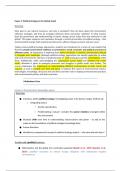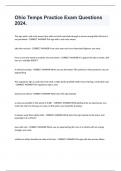Paper 3: Political Ecology in the Global South
Overview
Who gets to use natural resources, and who is excluded? How do ideas about the environment
influence ecologies, and how do ecologies influence ideas and power relations? In what manner
does the governance and understanding of nature change across scales from the molecular to the
global? This paper explores such questions through a central provocation of political ecology - that
environmental change, both material and discursive, affects changes in power and vice versa.
Taking various political ecology approaches, students are introduced to a series of case studies that
illustrate people-environment relations as connected to social, economic and political processes at
different scales. Of importance is exploring how power circulates, is resisted, and becomes imbued
in struggles over landscape. Although political ecology approaches are equally applicable to urban
and rural environments, the focus is predominantly on rural landscapes and the contestations within
them. Additionally, while acknowledging the connections across scales and between the north-
south, attention is given to emergent processes and struggles in global south case studies. The
course emphasizes the importance of understanding different environments as both 'social' and
'natural', as well as variable over time and space. It explores the nature of environmental science,
technologies, knowledge, discourse and narratives and their role in shaping environmental practices
and environmental policies and their outcomes.
Michaelmas Term
Lecture 1: Environments, knowledge, power
Overview:
● Introduce, define political ecology; Investigating power in its diverse ranges; ‘bottom-up’
o Integrating nature
▪ And its reproduction.
▪ Problematising ‘natural’- consider the power relations entangled within
the environment
● Illustrate shifts over time in understanding nature-culture and power – to add to the
scope on the foundations of political ecologies knowledge base
● Future directions
● Identify key components/concepts in political ecology analysis – who wins and who loses?
Trouble with (apolitical) natures:
● Afforestation and the global tree restoration potential (Bastin et al., 2019; Buscher et al.,
2017); apolitical responses to climate change mitigation with widespread negative
consequences
, o Privatisation - 11% total land, equivalent to US and China combined
o Politics of responsibility – time and money
o Defining land/forest and ownership – i.e. monoculture
o Serving palliative to the global crises, and uneven power relations
▪ Rendered technical
● But what is the history, discourses, politics
� WHO is ‘we’ and ‘our’? 🡨
Power/Agency (Human/more-than-human) 🡨🡪 Environment (Material/Discursive)
Putting politics first: ”All ecological projects (and arguments) are simultaneously political-economic
projects (and arguments) and vice versa” (Harvey 1993)
● Understanding of environmental change
● Ownership
● Livelihood quality and gender
Definition for political ecology:
‘Politics is inevitably ecological, and ecology is inherently political’ (Robbins, 2012)
“a confluence between ecologically rooted social science and political economy” (Peet & Watts
1996) - to investigating human–environment relations across scales to focus on questions of access
to and control over natural resources
“The concerns of ecology and a broadly defined political economy” (Brookefield and Blaikie 1987)
“Defines the environment as an arena where divergent actors with asymmetrical political power
compete for control and access of resources (Bryant & Bailey 1997) – to see that environmental
problems are not simply a result of (discourse) policy-failure or poverty, population or famine, but
rather a manifestation of political and economic processes from which they are created, notably
linked to the spread of capitalism.
Robbins (2011) asserts that the discipline has a "normative understanding that there are very likely
better, less coercive, less exploitative, and more sustainable ways of doing things" – to exposing
flaws in the dominant approaches to environments favoured by corporate, state and international
authorities, working to demonstrate the undesirable impacts of policies and market conditons
especially from the alternative viewpoint of the marginalised and vulnerable whilst proposing
solutions for it.
“Political ecology is a hatchet, cutting and pruning away the stories, methods, and policies that
create pernicious social and environmental outcomes” and also a seed by “evaluating and explaining
environmental change as well as explaining and determining the impact of ideas about
environmental change” Robbins (2011)
Loftus (2019) political Ecology is flexible and multi-layered in its research and can be applied to a
broad range of scopes and disciplines but still has much to gain ontologically
,(Peet and Watts, 2004); Essentially seeing that environmental issues are inherently social in origin,
and that the historical, political and economic contexts (re)produce its meaning
(i) why has certain knowledges been difficult to legitimate,
(ii) under what circumstances can such knowledge/practice be institutionalized without
co-optation or subversion?
(iii) how might it be systematized in policy
Key components and concepts of political ecology
● Reaction to apolitical ecology – technical solutions, ‘neutral’ scientific and expertise
knowledge
● Challenging normative, dominant environmental narratives/discourses.
o (Peet and Watts, 2004) Political ecology challenges Malthusian PPR explanations,
imbalances in market exchange or mismanagement for environmental issues,
instead centralising poverty as the leading cause and how it requires focusing on
nature-society relations.
● Re-approaching cartesian dualism discretely categorising ‘human’ and the ‘environment’,
instead co-producing and entangling assemblages
● Emphasizing ecology and politics in both material and immaterial forms
● Exposing contentious political understandings - Questioning trade-offs and responsibilities
● Geographical and time scale - Interconnectedness
Critique:
- Need for decolonising; “adheres to research practices and paradigms that have been
developed in the West, regardless of its diversity and dynamism as a field of research”
(Schulz, 2017)
Focus: Human-Environmental Issues
Five key aspects: (Robbins, 2011)
, THEMES WHAT RELEVANCE CASE EXAMPLE
Degradation and environmental Blame and environmental (Fairhead, 1996); “examines the
Marginalisation conditons and reasons degradation pitched in a changing local social and political
for their change larger political and relations which influence how
economic context people deal with land and vegetation
and, how regional poli-eco-graphic
changes shape local dynamics” in
Kissidougou
Rather than focusing on resources,
land is parameter for understanding
environmental issues in addition to
poverty as a proximate cause of
degradation and how poverty is
reproduced through determinate
structures or specific relations of
production in a chain of explanation
that can cross scales and scopes
when rendered in political, social,
historical, economic contexts. (Peet
and Watts, 2004)
environmental issue of
‘desertification’ in North-west
Namibia, assumed cause being the





